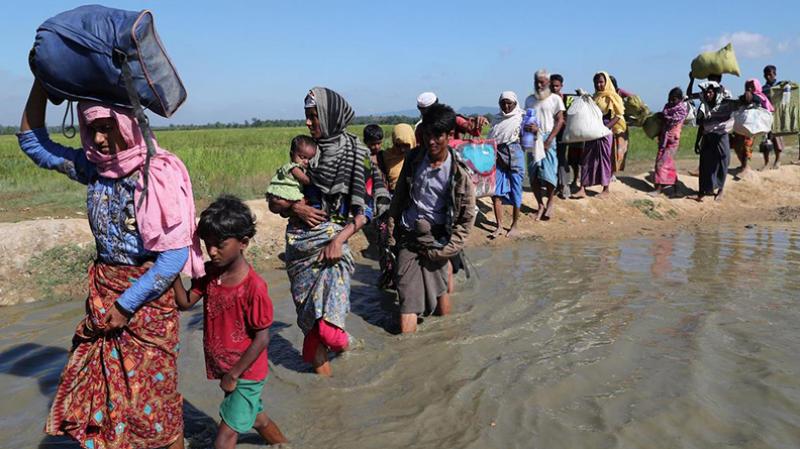
Bangladesh has responded to the request of the International Criminal Court [ICC], which last month asked Dhaka to “submit written observations, either publicly or confidentially” about the Rohingya issue.
“We have responded to the request and handed it over to the court,” State Minister for Foreign Affairs Shahriar Alam told the Bangla Tribune.
So far, on behalf of the Rohingyas, two amici curiae (non-partisan advisers), Dr. Mohammad Hadi Zaker Hossein and International Commission of Jurists, and Global Rights Compliance, submitted their public observations.
On May 7, the pre-trial chamber of the ICC invited Bangladesh to submit written observations of the Rohingya situation and Dhaka’s view about the court’s exercise of jurisdiction over the alleged deportation of people from Rakhine.
Bangladesh has opted for ‘confidential’ submission considering the sensitivity of the issue.
Reasons behind the decision
Bangladesh has a moral duty to respond to a crisis, termed ‘ethnic cleansing’ by the United Nations.
“As a state party of the Rome Statute, we cannot remain inactive on ethnic cleansing and, must do everything to hold the perpetrators to justice,” said another official.
On December 7, 2017, Bangladesh Ambassador to the Netherlands, Sheikh Mohammed Belal, at a New York assembly of states belonging to the Rome Statute, said: “If our Prime Minister, Sheikh Hasina, whom the world came to know as the ‘Mother of Humanity’, remained occupied with our interests only, she would not have accommodated a million Rohingyas.”
The ambassador underlined that Bangladesh had done, despite the odds, what is just and right.
“We urge you to do your part for the sake of humanity,” the diplomat exhorted.
The ICC is based in The Hague, the capital of the Netherlands.
June 20 hearing
The pre-trial chamber of the court will have a closed door session where only the prosecutor Fatou Bensouda will be present on that day.
On April 9, Bensouda sought a decision from the court “on the question whether the court may exercise jurisdiction under article 12(2)(a) over the alleged deportation of the Rohingya people from Myanmar to Bangladesh.
She made the move as United Nations have been calling for criminal accountability in Myanmar for months.
UN Special Adviser on the Prevention of Genocide, Adama Diengsaid said in Dhaka: “International crimes have been committed in Myanmar. Rohingya Muslims have been killed, raped, tortured, burnt alive and humiliated, solely because of who they are."
Bangladesh is now home to over 1.1 million Rohingyas, who fled their motherland as they faced persecution to the point of genocide perpetrated by the Myanmar military junta.
After the August 25, 2017, Myanmar army crackdown in Rakhine, which included rape as a method to intimidate and humiliate, about seven lakh people crossed over to Bangladesh for safety.
In the camps built to accommodate the fleeing Rohingyas, there are currently over 30,000 pregnant women, about 36,000 orphans and about 7,800 children who have lost both their parents while trying to flee the carnage unleashed by the indiscriminate army operation.


